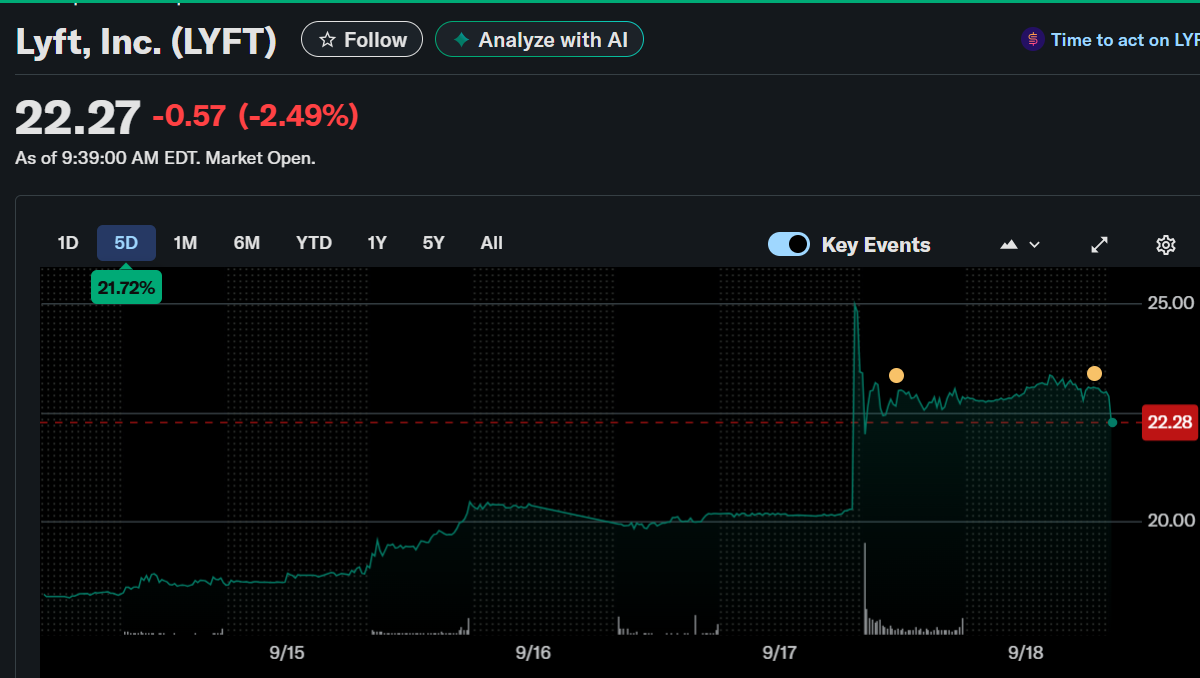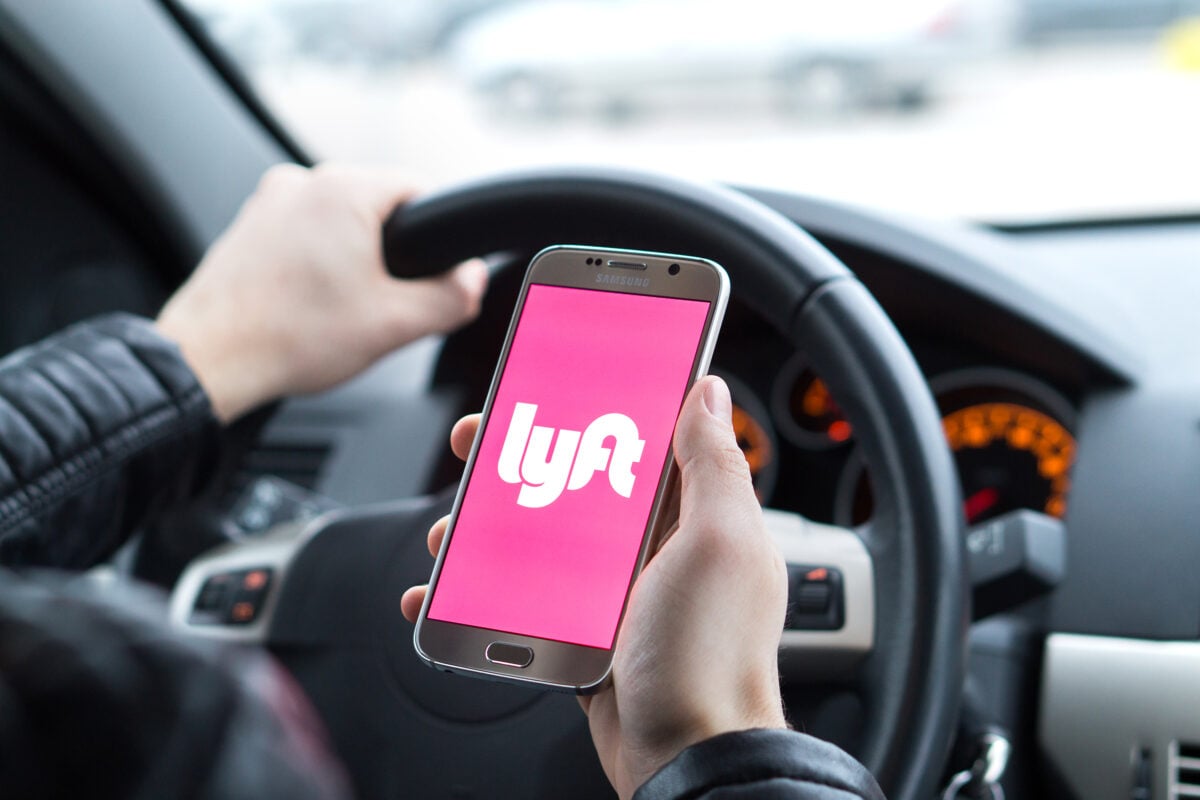TLDR
-
Lyft stock closed at $22.84 on Sept. 17, surging 13%.
-
Waymo to launch robotaxi service with Lyft in Nashville in 2026.
-
Uber shares fell 5% after Lyft’s deal, highlighting rivalry.
-
AV market projected to hit $330B by 2030.
-
Lyft stock up 77% YTD, outpacing Uber’s 48% gain.
Lyft, Inc. ($LYFT) stock closed at $22.84 on September 17, 2025, soaring 13.13% after news of a robotaxi partnership with Alphabet’s Waymo. Shares rose to $23.05 in pre-market trading, up 0.92%.

The surge reflects optimism that the collaboration will strengthen Lyft’s position in the autonomous ride-hailing market against rivals Uber and Tesla.
Waymo Partnership Details
Lyft and Waymo announced plans to roll out driverless ride-hailing in Nashville next year. Riders will initially book through the Waymo app, with integration into Lyft’s platform later in 2026.
As part of the deal, Lyft will provide fleet management services, including maintenance, depot operations, and infrastructure. A new autonomous vehicle facility will also be built to support charging and service needs.
Lyft stock surges 13% on Waymo robotaxi deal in Nashville https://t.co/AuNIWrplnr
— Yahoo Finance (@YahooFinance) September 17, 2025
Waymo’s co-CEO Tekedra Mawakana said the rollout is part of a broader strategy to gradually scale the service to more cities.
Competitive Landscape
The robotaxi industry is heating up. Waymo already operates paid services in San Francisco, Phoenix, Los Angeles, and Austin and has partnerships with Uber in Atlanta and Austin.
Tesla began testing its own robotaxi service in Austin this summer with expansion plans for Nevada, Arizona, and Florida. Amazon-backed Zoox continues testing in San Francisco and Las Vegas.
For Lyft, the Waymo deal avoids the high costs and risks of developing autonomous technology internally, allowing it to leverage Waymo’s advanced systems. This positions the company to better compete with Uber’s larger scale and Tesla’s technology-driven model.
Market Potential
Goldman Sachs analyst Mark Delaney estimates the U.S. ride-hailing market is worth about $58 billion today but could grow to $330 billion by 2030, with robotaxi adoption as a key driver. Removing human drivers could significantly reduce costs and improve margins for companies like Lyft.
Analyst View and Challenges
Despite the stock surge, analysts remain cautious. Evercore ISI’s Mark Mahaney maintained an “In Line” rating after Lyft’s mixed Q2 results, questioning whether the company can sustain top-line growth while improving profitability.
Still, Lyft’s performance this year is strong. Shares are up 77% year to date, compared with Uber’s 48% rise. Over the past year, Lyft has gained 86%, though its $9 billion market cap remains far smaller than Uber’s $195 billion.
Performance Overview
Lyft’s five-year return remains negative at -26.89%, underperforming the S&P 500’s 96.61% gain. Yet, the Waymo partnership signals a bold step toward long-term growth in the autonomous era.








